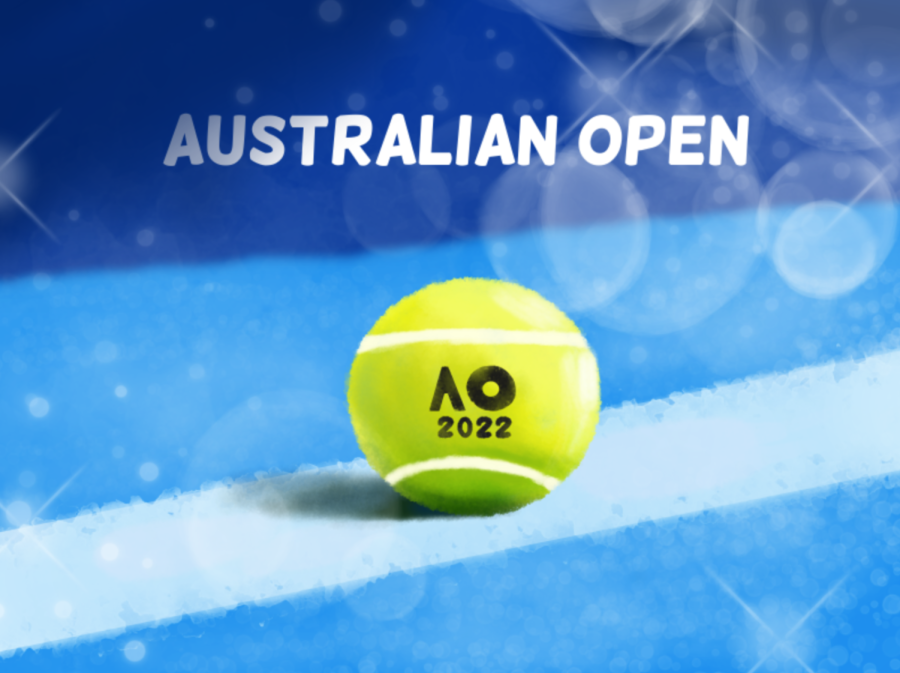Without a vaccination, Djokovic goes down under
January 31, 2022
Each year the Australian Open kicks off the Grand Slam of tennis as it’s annually played in Melbourne Park, Australia. There are $53.5 million U.S. dollars on the line for more than three hundred players. But a government decision regarding one of these players sparked an international outcry and a national debate that ended with Novak Djokovic being banned from playing in the tournament.
On Jan. 16, 2022, Novak Djokovic, a professional tennis player currently ranked No. 1 in the world, was deported from Australia due to a judicial court upholding Immigration Minister Alex Hawke’s decision to cancel Djokovic’s visa. Djokovic is unvaccinated against COVID-19, and Australia’s vaccine rules require that foreigners be vaccinated against it.
Australian judges and the immigration minister also looked into how Djokovic’s travel declaration was incorrect. It didn’t mention how he had been to several countries in the two weeks before arriving in Australia. The government was further worried that allowing Djokovic to stay without being vaccinated would bolster anti-vaccine sentiment. The lengthy episode that resulted from the initial cancellation of Djokovic’s visa at the airport on Jan. 5 finally culminated in his deportation and inability to play in the Australian Open.
The immigration minister said he “welcomed” the court’s resolution, allowing his decision to stand. The immigration minister also attempted to justify his decision by explaining that “Australia’s strong border protection policies have kept us safe during the pandemic, resulting in one of the lowest death rates, strongest economic recoveries, and highest vaccination rates in the world. Strong border protection policies are also fundamental to safeguarding Australia’s social cohesion, which continues to strengthen despite the pandemic.”
Djokovic had argued that the incorrect travel declaration was due to his agent making a mistake. Djokovic also reasoned that since he recently had COVID-19, he could have a medical exemption from taking the vaccine. His legal team further argued that canceling Djokovic’s visa could still stoke anti-vaccine beliefs.
After the court decided to deport him, Novak was “disappointed” but stated, “I respect the court’s ruling, and I will cooperate with the relevant authorities in relation to my departure from the country…I am uncomfortable that the focus of the past weeks has been on me, and I hope that we can all now focus on the game and tournament I love.”
Djokovic had many supporters that also argued against his visa cancellation, including tennis fans, players, and even the president of his home country Serbia, Aleksandar Vučić, who called the Australian government’s decision “a farce” and that they had “humiliated” Djokovic. On the other hand, many Australians and some tennis organizations supported the court ruling. The Association of Tennis Professionals (ATP) called the situation a “deeply regrettable series of events” while also saying that “decisions of legal authorities regarding matters of public health must be respected.”
This year, the Australian Open is one of the many events that will keep the debate of vaccination status running, with governments pitted against people and even other governments. The following tennis Grand Slam, The French Open, also requires players to be vaccinated following a vaccine mandate passed by the French government. However, those recently infected with Covid may be allowed to play. Nobody is sure how this will play out, but one thing is for sure: pro-vaccine governments are starting to take drastic measures to vaccinate and keep the unvaccinated out.



